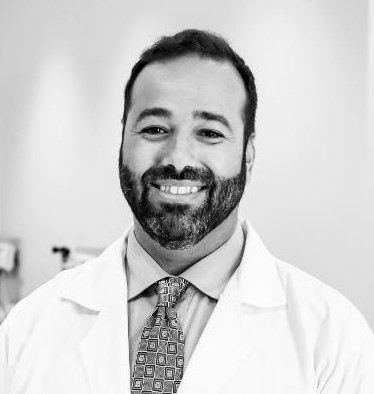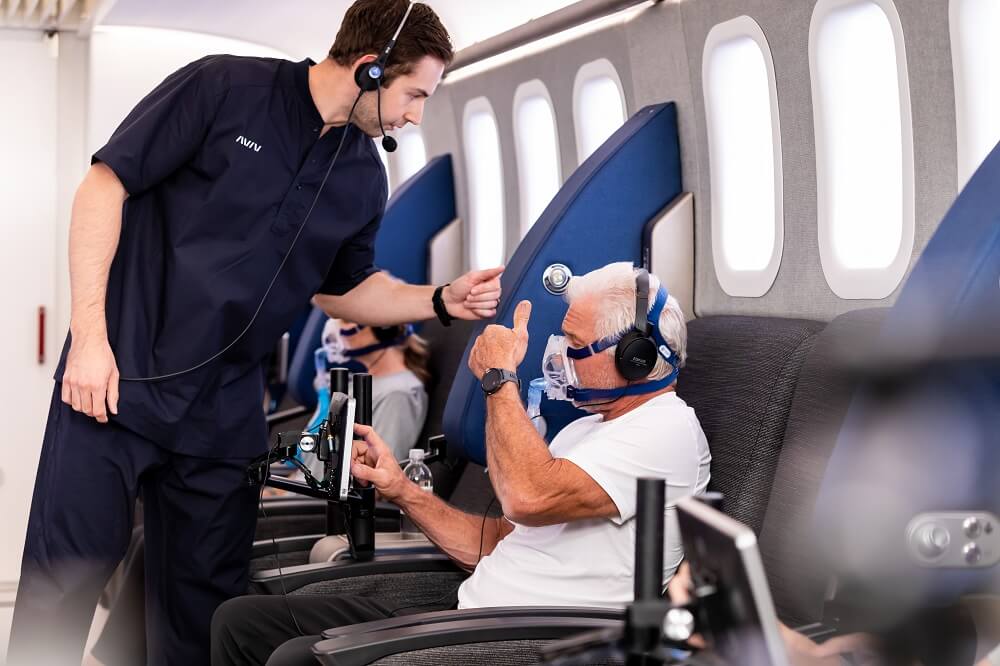
Losing Libido: A Look at the Causes of Low Libido and New Treatments for Aging Adults


Most men experience changes in libido at some point in their lives. An occasional decrease in desire is normal, but if a man’s decreased sex drive becomes consistent, it can significantly impact self-esteem, relationships, and overall well-being.
You’re not alone if you or a loved one lives with low libido. It’s important to understand that many of the factors causing a loss in libido are not anyone’s fault. No matter the causes, it can be an incredibly frustrating situation.
Rest assured, there are several solutions to address the root causes of low libido.
What Is Libido and Why Is It Important?
Libido refers to a person’s sexual desire or sex drive: the instinct to engage in sexual activity. Libido is essential to overall sexual health and well-being. A healthy libido contributes to a fulfilling sex life and improved relationship intimacy. If you regularly deal with low libido, it can feel discouraging and start to impact other areas of your life.
Low libido is common, especially as we age. The condition affects “up to 1 in 5 men” and even more women at some point. Because low libido isn’t always easy to talk about, it may even be more common than the research suggests.

Common Causes of Low Libido
Various factors can cause a loss of interest in sexual activity. Physical, psychological, and lifestyle factors play a role for both men and women. If you experience low libido, you may not always be able to pinpoint the reasons. In many cases, there could be more than one cause of low libido.
Fortunately, research has found several “known causes of decreased libido.” A few of the most common causes of low libido in men include the following:
- Stress
- Depression
- Anxiety
- Illness
- Medications
- Age
- Hormonal changes
- Lifestyle
As we age, the body slows some processes contributing to sexual desire, including the production of reproductive hormones. As testosterone decreases, it can result in “diminished sexual desire” and other symptoms, including mood changes, depression, fatigue, and changes in cognitive function. In women, a rapid decline in hormones, including testosterone, estrogen, and progesterone, is typical around age 45, which also “contributes to reduced sexual desire.”
What Is Erectile Dysfunction (ED)?
Erectile dysfunction (ED) is a common issue among aging men. The subject refers to difficulty achieving or sustaining an erection during sexual activity. The Massachusetts Male Aging Study demonstrated that the prevalence of ED increases with age, and “approximately 40% of men are affected at age 40 and nearly 70% of men are affected at age 70.”
While ED doesn’t inevitably happen as you age, it is linked to many common changes occurring in your body as you grow older, along with chronic health conditions and lifestyle choices.
Causes of Erectile Dysfunction in Aging Men
Several physical and psychological factors in aging men can contribute to ED and impact sexual health.
Erectile dysfunction “is common, affecting at least 12 million U.S. men.”
Physical causes of ED may include:
- Reduced blood flow to the penis due to atherosclerosis, a condition causing the narrowing of blood vessels
- Hormonal imbalances, such as a decrease in testosterone levels
- Nerve damage caused by conditions like diabetes, multiple sclerosis, and Parkinson’s disease
- Medications used to treat chronic medical conditions like hypertension, diabetes, and depression
- Lifestyle factors, such as smoking, excessive alcohol consumption, and obesity
Psychological factors also contribute to ED, including:
- Stress caused by various life situations
- Anxiety, especially related to sexual performance
- Depression, which can impact overall mood and well-being
Remember that these factors can work as a system, influencing and interacting with each other, creating a multifaceted cause.

Available Libido Treatment Options
In general, libido treatment for male and female individuals depends on the underlying causes of low libido. Some common treatments address the psychological, emotional, hormonal, medical, and lifestyle factors thought to contribute to a lack of sexual desire.
Again, the specific treatment used to treat low libido differs by individual, but apply these common approaches:
- Lifestyle changes: Making lifestyle modifications that include quitting smoking, losing weight, and reducing alcohol consumption can improve libido.
- Counseling and therapy: Talking to a professional counselor can reduce stress and promote relaxation, which can help address psychological factors.
- Hormonal therapy: In men, testosterone replacement therapy is often used. In women, hormone replacement therapy is typical.
- Medications: Medication adjustments may help restore sexual desire. Starting new medications can also address psychological and physical concerns.
Addressing the causes of ED is a common way to approach low libido treatment in males and can include the following:
- Medications such as Sildenafil, Tadalafil, and Vardenafil, which dilate the blood vessels and increase blood flow to the penis
- Vacuum erection devices (VEDs) that pull blood into the penis
- Penile injections like Alprostadil to increase blood flow to the penis
- Surgical insertion of penile implants for those who don’t respond to other treatments
As researchers continue identifying the risk factors associated with low sexual desire, many new and promising treatment options are becoming increasingly available.
ED and Hyperbaric Oxygen Therapy
Among the new ED treatments in 2022 and beyond is hyperbaric oxygen therapy.
Hyperbaric oxygen therapy (HBOT) is a non-invasive treatment option that involves breathing pure oxygen in a pressurized chamber. New HBOT protocols have been shown to stimulate the growth of new blood vessels (angiogenesis), which can help improve erectile function in men with ED.
Among the latest advancements in ED treatment, HBOT may be one of the most encouraging. Dr. Shai Efrati, a physician, researcher and hyperbaric medicine expert, has conducted groundbreaking research the use of HBOT for treating ED. His peer-reviewed, published research has shown that HBOT can improve erectile function in men with ED by stimulating the growth of new blood vessels in the penis and enhancing blood flow.
In a study published in the Journal of Sexual Medicine, Dr. Efrati and his team found that 80% of men “reported improved erections” after HBOT therapy. The study also found that the effects of HBOT on erectile function were long-lasting, with some participants still reporting improvements in erectile function six months after treatment.

ED Isn’t Inevitable
Erectile dysfunction is a common problem many aging men face, and it can profoundly impact their quality of life. While several treatment options are available for ED, the most effective approach is to address the condition’s underlying cause.
The Aviv Medical Program uses a holistic approach to enhance brain and body performance, which can address many of the underlying causes of low libido. The program examines individual factors to design a customized treatment path, including nutritional coaching, physical and cognitive training, or hyperbaric oxygen therapy.
The HBOT protocol is a promising treatment option for ED. The unique hyperbaric protocol developed by Dr. Efrati, using fluctuating oxygen levels to increase oxygen absorption, is only available at Aviv Clinics in Florida.



